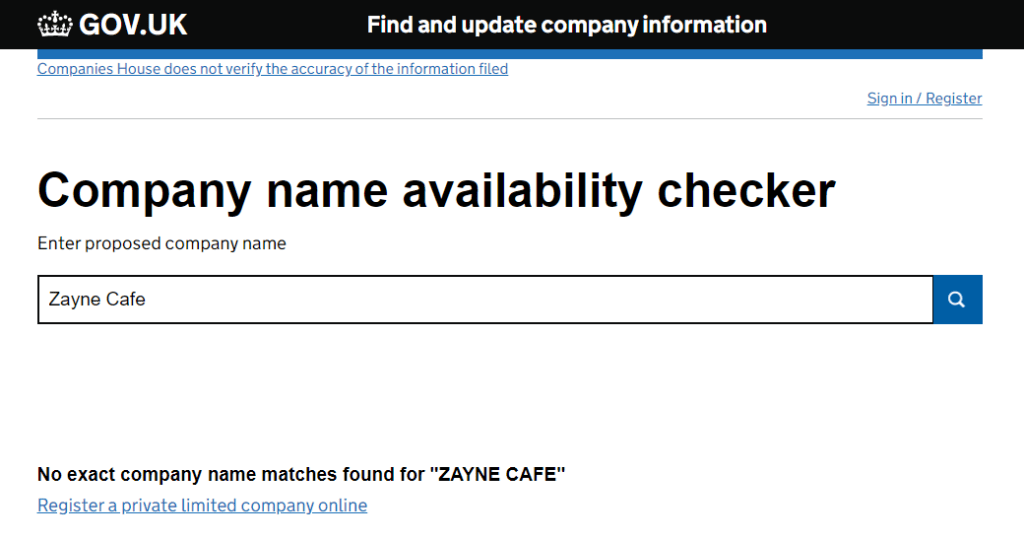How to Register a Company Name in UK Complete Guide
Do you have a cool business idea and want to monetize it into a startup? Registering your company name can be the first port of call. You must be concerned about the legal implications of starting your business, or you want to tap into the benefits of incorporation.
You should register your company through the company’s house to keep your wheel turning. Do you want to know what it takes to register a private limited company in the UK?
We will provide you with a guide on how to register a company. What benefits? When it’s high time to go? So, stay tuned!
Registering a Limited Company Name in the UK
More often than not, people register their small businesses or startups as limited companies rather than sole traders. Currently, the registered companies touch the staggering figure of 4 million in the UK. Over five hundred thousand new companies are registered annually in Companies House. Though transitioning from self-employed or sole trader to owning a company requires a smooth landing, it takes time to manifest the change.
The question arises here. Why would someone register one’s company if they are good to go with being a sole trader? When you are just starting and don’t seem to make enough, it’s always sane to become a sole trader. It’s less of a hassle as you are your own business. It makes you less responsible for the things going around you.
Well, that doesn’t mean you don’t have to register yourself. A sole trader is liable for registering them with HMRC. They require you to go through an online self-assessment, and you are done with the registration.
While it’s enough if you’re operating under limited profits, once you think of scaling up your business, incorporation becomes a mandatory thing.
Simple Steps to Register a Company Name in the UK

The registration process isn’t as expensive and time-consuming as most people think. There is an entire department for that in the UK. Companies House regulates everything about limited companies. First, you must file a registration application, also called form IN01, with Companies House.
You can do it online or by post as you like. When it gets registered, you are liable to provide annual statements, account information, and any changes you have made with your company.
It streamlines your information with the national data and applies all the limited company regulations to you.
1. Select a Unique and Relevant Name
The first thing you have to do when you go through the registration process is select a company’s name. Every business stands with a unique and relevant name. When we say relevant, we mean a name that resonates with your business niche. Suppose you choose a “chicken savory” name for your farming business.
Now it’s different for the type of business you do. It seems like a restaurant’s name. It isn’t good for your business as it doesn’t align with what you sell. So, take care when you choose a name. The second vital thing in selecting a name is its uniqueness. You need to have a separate name that doesn’t match any business already registered.
If you struggle to find a unique name, you can go for the name availability checker of Companies House. They have a huge database of registered names. If your selected name doesn’t appear in it, you can use it for your business.

You need to consider certain things while selecting a name for your company. There isn’t any hard and fast rule to avoid those offensive words, but you need to have a general understanding of what’s prohibited.
You can’t select a name that has to do what the government or state. You should avoid using words that seem to malign a certain class, creed, or group. It’s ridiculous to choose words that are generally considered bad or R-rated unless you sell something above 18.
Some words need an authority’s approval on your name. You either get the approval to use these names, or you should avoid them in the first place because they may come under criminal acts even if you do it unintentionally.
2. Select Your Company’s Address
Once you come out successful, find a suitable company name. The next step is to make it more palpable. For this purpose, Companies House demands a real address where your company is located.
A company’s address doesn’t mean you need to show them a palace where you run your business. Instead, it’s needed so that you get the official notifications on that address.
So, you can give your residential address if you want. However, some people don’t want to disclose the palace where they live as they know that the address will be available in the official database, and anyone can find it easily.
They share other addresses, like their accountant’s address, to make it more private. It is, somehow, technically the right thing to do. After all, your accountant runs your business, so it’s better to share their address.
3. Provide the Company Director's Name
A limited company must have a director who runs it and is responsible for everything inside the company. It is necessary to disclose their name to Companies House. You can have more than one director in your company. If that’s the case, you need to specify their name.
Moreover, you also have to share their address. You need to share two addresses. One is the company’s address, and the second is the director’s residential address. The residential address isn’t disclosed to the public. But, if both addresses are the same, then you need to define another second address.
Another important and mandatory thing in a limited company is the division of shares. The regulatory body wants you to define that company’s shares. You have to tell the value of each share and who the shareholders are.
4. Pay the Registration Fee
After going through each step, you must review the information to avoid mistakes. Then, at last, you have to pay a 12 pounds fee for registration.
The myth is that registering a company’s name is costly; however, the fee is nominal.
When Should You Register Your Business?
Regarding business, it’s hard to tell when you should go for registration. Sometimes, you never know when your small hobby will turn into a profitable business. The things you’re doing maybe for passion may become profitable, and when you witness this trend, it’s high time to register it. The number of transactions and the money going into your account may indicate the time.
You don’t know when HMRC and Companies House come striking at your door. So, it’s better to stay abreast of all your business happenings and plan out if you want to scale up your business.
At some point, incorporation doesn’t remain a choice. It becomes obligatory. When hiring people, you need to register as soon as you define your role as an employer. Paying for the corporation taxes is necessary when you’re meeting a certain yearly income threshold. The same goes for insurance.
Benefits of Registering Your Company in the UK

Forming your company as a limited enterprise in the UK is a bit tricky. However, later benefits make it a worthy thing for the business. You may plunge into some extra obligations, such as compliance with the HMRC and Companies House.
But, the advantages you accrue from it are enough to fend off these drag of responsibilities. Below are several plus points to registering your company in the UK.
1. Removes Personal Financial Liability
As a sole trader, you are held responsible for anything bad happening to your business. If, in any case, the company gets into debt or financial trouble, your assets remain protected. For instance, if your business incurs debt and the lender wants you to pay money, they can’t sue you for not paying the debt in time.
Thus, a limited company brushes off the financial burden from your shoulders. Suppose your product or service doesn’t go well with your customers or suppliers.
Being a sole supplier, they have recourse to your personal finance. You may end up in deep waters if they sue you. Instead, a limited company stops them from attacking your assets, as you may only lose what you have put into your company.
2. Helps in Branding Your Product
Registering a limited company gives it a name. Your customers or investors can check you on the Companies House website to find out whether you are legit or not.
It builds trust and develops rapport among them. However, you sound shady if you run it as a sole trader.
It also helps you build your professional image. Many businesses won’t partner with you if you are a sole trader because they fear losing their money– A limited company is the name of the trust.
3. Protects Your Trademark Name
Suppose you have a stonking good name in your head. It’s high time you register it with your company. Thus, it saves your brand name from getting stolen by your competitor. You might have to build a sound business. Everything goes well as you are satisfied with your customer influx and sales.
But the caveat is you haven’t yet registered it. You may lose hard-earned customers to some other business if they use your name and ride on your back to build their business.
Registering your company name protects it under UK law. They are tight enough that no one can register their company or do business with that name or any name close to it. Thus no one can affect your business by faking that they are more real than you.
4. Defines Your Company Rules and Roles
Half of the business’s success depends on a proper plan that explains everything, including your roles and business regulations. So, it is better to have a proper plan on paper. A limited company helps you define everything as you run the business.
Let’s say you have other partners with you. So, whether your company is making profits or losing money, you can define what to do when a certain situation appears.
What happens if one of your partners wants to leave? How will things go if someone wants to sell their shares? You can consider all the risks involved if you register your business name.
Summing Up
The ultimate goal of every startup is to become a big enterprise. Some business owners even forecast them as the next unicorn at the turn of the decade. But to reach that level, they must pass the stage of becoming a limited company. That’s why they need to register their company in the UK.
It provides businesses with a name and helps them scale up easily. The registration process is fairly simple, as companies house requires a simple application from you.
We have enlisted a detailed registration process for you. We hope that it will help you in registering your business. After reading it provide your valuable feedback.
Read More : Best Small Business Ideas in 2022
Read More : What is Business? Explain Basic Concepts of Business
